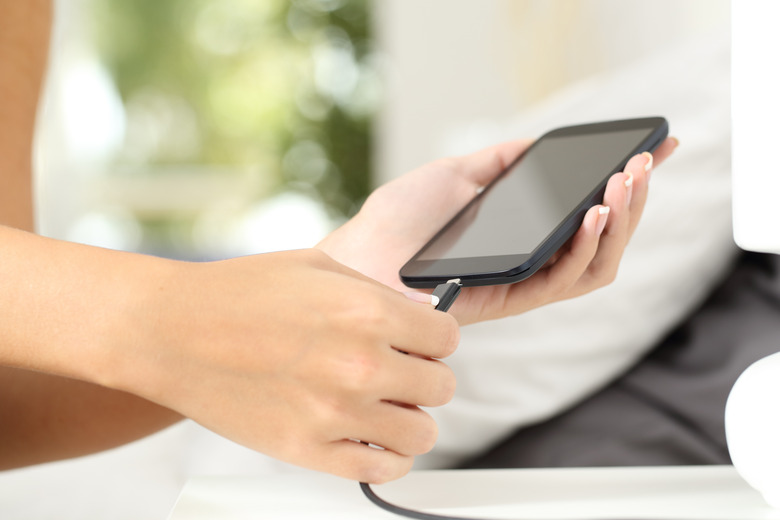Does A Larger mAh Number On Your Cell Phone Battery Mean A Better Battery?
Batteries with larger mAh ratings generally last longer than those with smaller ratings, assuming that the batteries are subjected to the same patterns of usage, but it may not mean a better battery. The milliampere hour represents a unit of electrical charge commonly used to measure battery capacity. It is often described as the size of a battery's fuel tank, as it measures the total amount of energy the battery supplies in an hour when fully charged.
Milli-Ampere Hours
Milli-Ampere Hours
One milliampere hour is the amount of capacity needed to let one milliampere of electrical current flow for one hour. When charged, a battery effectively has a reservoir of capacity. If the battery only needs to supply a small current, that reservoir may last for a long time before becoming drained. But if the same battery is used to power an item that requires a high current to operate, its reservoir of energy drains much more quickly.
Relationship to Battery Life
Relationship to Battery Life
To calculate a battery's life, divide the capacity of the battery by the current required by the object it powers. For example, imagine that you have two batteries for your cell phone, one with a capacity of 1000 mAh and one with a capacity of 2000 mAh, and that your phone requires a current of 200 mA to function. The first battery would power the phone for five hours, as 1000 divided by 200 equals five. But the second battery would power the phone for ten hours, as it has double the capacity of the first. While a larger number indicates battery power, larger mAh batteries may not be better if it is a poor quality battery. It simply means it can store more power.
Usage Factors
Usage Factors
Cell phone battery life is heavily dependent on the way in which you use the phone. The more features you run at the same time on your phone, the more current your phone requires and the quicker the battery's capacity drains. This is why using WiFi or running complex games on your phone drains the battery quickly. As such, a battery with a high capacity that is used to power a smartphone might last for less time than a low-capacity battery that powers a basic device.
Battery Size
Battery Size
Although higher-capacity batteries generally last longer than lower-capacity ones, they are not always suitable for use in every device. To achieve a higher capacity, battery makers often have to fit more cells into each battery. Cells are the parts of a battery in which the chemical reaction needed to generate electricity happens. Increasing a battery's cell count can in turn increase both the size and weight of the battery, making it unsuitable for use in slimline devices such as smaller cell phones and netbooks. The temperature and speed of electrical current discharge affects the overall capacity of the battery. Poorly made batteries often heat up too quickly resulting in performance issues or degraded capacity.
Cite This Article
MLA
Walton, Andy. "Does A Larger mAh Number On Your Cell Phone Battery Mean A Better Battery?" sciencing.com, https://www.sciencing.com/larger-mah-number-cell-phone-battery-mean-better-battery-15015/. 13 March 2018.
APA
Walton, Andy. (2018, March 13). Does A Larger mAh Number On Your Cell Phone Battery Mean A Better Battery?. sciencing.com. Retrieved from https://www.sciencing.com/larger-mah-number-cell-phone-battery-mean-better-battery-15015/
Chicago
Walton, Andy. Does A Larger mAh Number On Your Cell Phone Battery Mean A Better Battery? last modified March 24, 2022. https://www.sciencing.com/larger-mah-number-cell-phone-battery-mean-better-battery-15015/
